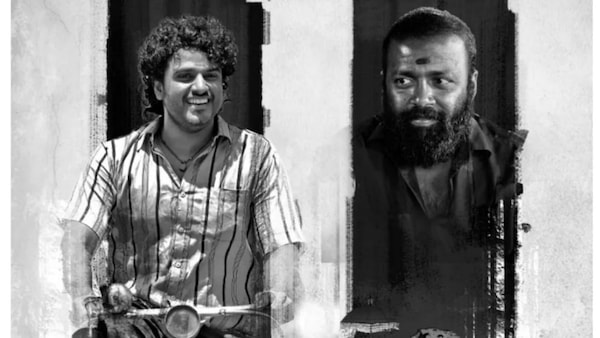Vedikettu review: Vishnu Unnikrishnan-Bibin George’s rural entertainer is engaging, but takes on too much and loses its way
While the film’s first half is an all out entertainer, barring some old-line tropes, the second half becomes too convoluted, with the story’s drastic shifts in tone.

Last Updated: 04.18 PM, Feb 03, 2023
Story:
Fights and brawls are a common occurrence between the residents of the neighbouring regions of Manjapra and Karingotta. The people of Karingotta find themselves the victim of prejudices by their neighbours, and not a day goes by when a fistfight breaks out between the two islanders. However, when a young Manjapra man falls hopelessly in love with a girl from Karingotta, the already tense relation between the residents gets even more heated.
Review:
In the opening sequence of Vedikettu, viewers get to see a sculpture of social reformer Sree Narayana Guru in Manjapra, with his famous line “One Caste, One Religion, One God for All” etched in stone. Writer-director duo Vishnu Unnikrishnan and Bibin George’s use of irony in this way hits hard as the story of Vedikettu unfolds, telling the tale of islanders whose prejudices translate into hatred and violence, not unlike the happenings plaguing the country today.
Initially, Vedikettu seems to be a typical Romeo and Juliet love story, well almost. In a tale as old as time, a young man, Jithu, falls head over heels in love with a young girl, Shimily, from the neighbouring island, relentlessly pursuing her despite her disinterest. But the girl’s indifference to his advances is not the only thing standing in his way, as the long standing rivalry between his town of Manjapra, and the island of Karingotta, which the girl becomes, complicates things for him further. Jithu’s constant attempts at breaking up Shimily’s marriage proposals earn him the wrath of her brother Shibu, who vows to never let Jithu marry his sister no matter what may come.
Despite following a story that audiences have become all too familiar with, Vedikettu’s excellent script manages to keep viewers entertained throughout its first half. The skilled cinematography does a fabulous job at pulling viewers in to offer an up and close look into the beauty of the rural setting, from its breathtaking natural beauty to the enchantment of the simple pleasures of village life. The well placed humour, despite being a tad too outlandish at times, is definitely enjoyable, making one forgive the sluggish pace and monotony that creeps into the story at times. The performances from both the lead cast and supporting stars are also worth mentioning.
In trying to drive home the message of the extent of the rivalry between the two regions, the writing gets a bit repetitive as the back and forths between the Manjapra and Karingotta residents are showcased in excruciating details. But at the same time, the writing also fails to draw more upon some of the elements that viewers would have questions about. For instance, despite the rivalry, marriages between Manjapra and Karingotta residents are not a rare occurrence, as we even get to see an example in the film as well. So the real backstory between Shibu’s intense hatred for Jithu, a crucial part of which was mentioned in the film, was something which could have made for an interesting storyline.
The entertaining first half of the film gives way to a convoluted, chaotic second half, where it seems that the writers were trying to fit a number of elements into the story within the short runtime. The start changes in the film’s tone, and its inability to stick to a particular route makes the story lose its way quite often as a result. Predictability is also something the writing falls prey to, and more often than not, some of the sequences intended to be emotional and stirring end up looking melodramatic.
To its credit, the writers did try to set the film apart by including certain elements that borrow from real life events, in fact, a revolutionary one. But the execution could have been better.
Verdict:
Writer-directors Vishnu Unnikrishnan and Bibin George have certainly delivered an entertaining watch in the form of Vedikettu. However, the entertainment and intrigue the first half offers is something the second half fails to provide, with the latter being plagued by a sluggish pace, predictability in its story and convoluted writing.

 Premium
Premium